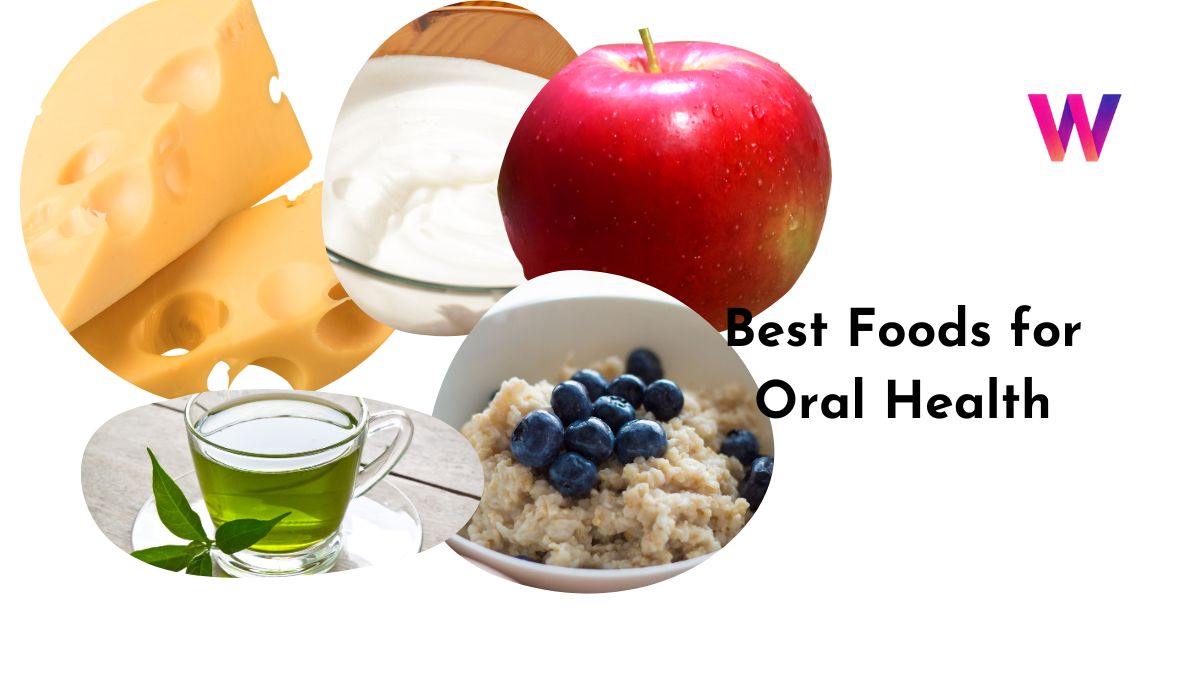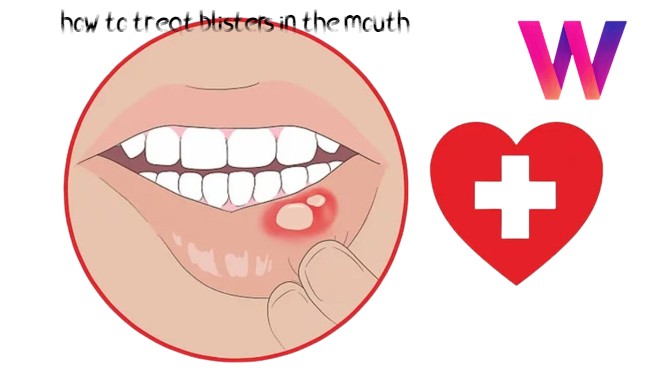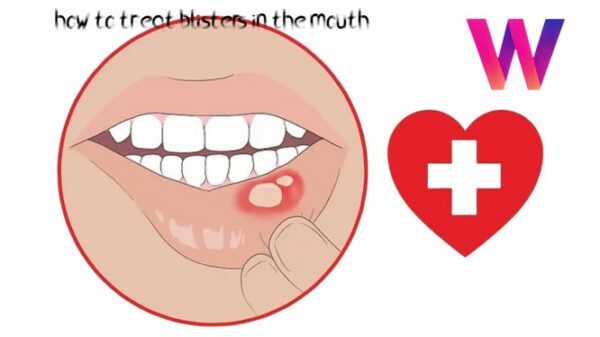Oral health is not only about brushing and flossing your teeth regularly. It also depends on what you eat and drink. Your diet can have a significant impact on your teeth and gums, as well as your overall health. Some foods can help prevent cavities, gum disease, bad breath and tooth decay, while others can increase your risk of these problems. Here, I will explore some of the best foods for oral health and why they are beneficial. We will also provide some tips on how to incorporate them into your daily routine.
Table of Contents
Why Is Diet Important for Oral Health?
Your diet affects your oral health in several ways. First, the foods you eat provide essential nutrients that your teeth and gums need to function properly and stay strong. For example, calcium, phosphorus and magnesium are important minerals that help build and maintain the enamel, the hard outer layer of your teeth that protects them from decay. Vitamin C, vitamin D and vitamin K2 are also vital for gum health, as they help prevent inflammation, infection and bleeding.
Second, the foods you eat can also influence the pH level of your mouth, which is a measure of how acidic or alkaline it is. A balanced pH level is around 7, which is neutral. When you eat acidic foods or drinks, such as citrus fruits, soda or wine, the pH level drops below 5.5, which is the critical point where enamel starts to dissolve. This makes your teeth more vulnerable to cavities and erosion. On the other hand, when you eat alkaline foods or drinks, such as vegetables, nuts or water, the pH level rises above 7, which helps neutralize the acids and protect your teeth.
Third, the foods you eat can also affect the amount and quality of saliva in your mouth. Saliva is a natural defense mechanism that helps wash away food particles, bacteria and plaque from your teeth and gums. It also contains enzymes that help break down starches and sugars in your food, reducing their potential to cause decay. Saliva also contains minerals that help remineralize your enamel and keep it strong. Some foods can stimulate saliva production, such as crunchy fruits and vegetables or sugarless gum. Other foods can reduce saliva flow, such as alcohol or dry foods.
What Are the Best Foods for Oral Health?
There are many foods that can promote oral health in different ways. Some of the most effective options include:
Yogurt
Yogurt is rich in calcium, which helps strengthen the enamel on your teeth. It also contains probiotics, which are beneficial bacteria that can balance the oral microbiome and fight off harmful bacteria that cause cavities and gum disease. According to recent studies, yogurt could also help alleviate bad breath by reducing odor-causing compounds, such as hydrogen sulfide, inside the mouth. Just make sure to choose yogurt that doesn’t contain a lot of added sugar.
Apples
Apples are crunchy fruits that can increase saliva production, which helps rinse away food particles and bacteria from your teeth and gums. They also contain fiber, which acts as a natural toothbrush and gently scrubs your teeth as you chew. Apples also contain antioxidants and vitamin C, which can boost your immune system and prevent gum inflammation. However, apples are also acidic, so you should rinse your mouth with water after eating them to avoid damaging your enamel.
Cheese
Cheese is another dairy product that is high in calcium and phosphorus, which help remineralize your enamel and prevent tooth decay. Cheese also lowers the pH level of your mouth by creating a protective film around your teeth that neutralizes acids. Additionally, cheese contains casein, a protein that can inhibit the growth of cavity-causing bacteria.
Green Tea
Green tea is a popular beverage that has many health benefits, including oral health. Green tea contains polyphenols, which are natural compounds that can prevent plaque formation and reduce inflammation in your gums. Green tea also has antibacterial properties that can kill harmful bacteria in your mouth and prevent bad breath. Moreover, green tea contains fluoride, which is a mineral that strengthens your enamel and prevents cavities.
Oats
Oats are whole grains that are rich in fiber and complex carbohydrates, which can keep you feeling full for longer and reduce your cravings for sugary snacks. Oats also contain magnesium, zinc and iron, which are essential for healthy teeth and gums. Furthermore, oats have a low glycemic index (GI), which means they don’t cause a rapid spike in your blood sugar levels, unlike refined grains. This can help prevent diabetes, which is a risk factor for gum disease.
Cinnamon
Cinnamon is a spice that can add flavor and aroma to your food, as well as improve your oral health. Cinnamon contains cinnamic aldehyde, an oil that can inhibit the growth of bacteria and fungi in your mouth. Cinnamon also has anti-inflammatory and antioxidant properties that can prevent gum disease and tooth decay. You can sprinkle some cinnamon on your oatmeal, yogurt or coffee, or chew on a cinnamon stick for a natural breath freshener.
Sugarless Gum
Sugarless gum can be a good option for your oral health, as long as you choose one that contains xylitol, a natural sweetener that can prevent cavities. Xylitol works by inhibiting the metabolism of sugar by bacteria, which reduces their ability to produce acids and plaque. Xylitol also stimulates saliva production, which helps wash away food particles and bacteria from your teeth and gums. Chewing sugarless gum after meals can also help remove food debris and neutralize acids in your mouth.
[Also Read: Causes And Ways to Cure Rampant Caries]
How to maintain oral health:
Here are some of the best practices that you can follow, according to the search results:
- Never skip the basics: Brush your teeth twice a day with fluoride toothpaste and a soft-bristled toothbrush. Floss daily between your teeth to remove plaque and food particles. Rinse your mouth with water or mouthwash after eating or drinking.
- Set reminders: If you tend to forget to brush or floss, set alarms or notifications on your phone or calendar to remind you. You can also keep a spare toothbrush and floss in your purse, car or office for convenience.
- Always go to checkups: Visit your dentist at least once a year for a professional cleaning and examination. Your dentist can detect and treat any oral problems early, such as cavities, gum disease or oral cancer. Your dentist can also advise you on the best oral care products and techniques for your specific needs.
- Use the right brush and brush properly: Choose a toothbrush that fits your mouth comfortably and has soft bristles that can reach all areas of your teeth. Replace your toothbrush every three to four months or sooner if it is worn or frayed. When you brush, place your toothbrush at a 45-degree angle toward your gums and use gentle circular motions. Brush for at least two minutes, covering all surfaces of your teeth and tongue .
- Drink fluoridated water: Fluoride is a mineral that strengthens your enamel and prevents cavities. Drinking fluoridated water can help you get enough fluoride for your oral health. You can also use fluoride toothpaste and mouthwash, or ask your dentist about fluoride treatments or supplements if you live in an area where the water is not fluoridated.
- Limit sugary and acidic foods and drinks: Sugar and acid can damage your enamel and cause cavities and erosion. Avoid or limit foods and drinks that are high in sugar or acid, such as candy, soda, juice, wine, citrus fruits, vinegar or pickles. If you do consume them, rinse your mouth with water afterward or chew sugarless gum to neutralize the acids .
- Eat healthy foods: Eating a balanced diet that is rich in fruits, vegetables, whole grains, lean proteins, nuts, seeds and dairy products can provide your teeth and gums with the nutrients they need to stay healthy. Some of the best foods for oral health include yogurt, apples, cheese, green tea, oats, cinnamon and sugarless gum, as we discussed earlier in this article .
- Avoid tobacco and alcohol: Tobacco and alcohol can harm your oral health in many ways. Tobacco can stain your teeth, cause bad breath, increase plaque buildup, irritate your gums and increase your risk of oral cancer. Alcohol can dry out your mouth, reduce saliva flow, erode your enamel and increase your risk of gum disease and tooth decay. If you use tobacco or alcohol, try to quit or limit them as much as possible .
- See your doctor or dentist if you have sudden changes in taste or smell: Changes in taste or smell can indicate an infection, inflammation or other problem in your mouth or elsewhere in your body. If you notice any unusual changes in your taste or smell, see your doctor or dentist as soon as possible to find out the cause and get treatment.
What Are the Worst Foods for Oral Health?
While some foods can benefit your oral health, others can harm it. Some of the worst foods for oral health include:
Candy
Candy is one of the worst enemies of your teeth, especially sticky or hard candy that can cling to your teeth or crack them. Candy contains a lot of sugar, which feeds the bacteria in your mouth and produces acids that erode your enamel and cause cavities. Candy also reduces saliva flow, which makes it harder to wash away the sugar and bacteria from your teeth. If you have a sweet tooth, opt for dark chocolate or fruits instead of candy.
Soda
Soda is another sugary drink that can damage your teeth. Soda contains carbonic acid, phosphoric acid and citric acid, which can dissolve your enamel and make your teeth more sensitive and prone to decay. Soda also contains artificial colors and flavors that can stain your teeth and make them look dull. Moreover, soda can dehydrate you and reduce saliva production, which worsens the effects of sugar and acid on your teeth. If you want to quench your thirst, drink water or unsweetened tea instead of soda.
Bread
Bread may seem harmless, but it can actually harm your oral health. Bread is made of refined carbohydrates that break down into sugars in your mouth. These sugars feed the bacteria in your mouth and produce acids that cause cavities. Bread also tends to stick to your teeth, especially between them, where it can be hard to remove. If you eat bread, choose whole-grain bread instead of white bread, as it contains more fiber and nutrients and less sugar.
Alcohol
Alcohol is another drink that can affect your oral health negatively. Alcohol can dry out your mouth and reduce saliva production, which makes it easier for bacteria and plaque to accumulate on your teeth and gums. Alcohol can also irritate your gums and cause inflammation and bleeding. Moreover, alcohol can stain your teeth and make them look yellow or brown. If you drink alcohol, do so in moderation and drink water along with it to stay hydrated and rinse your mouth.
Ice
Ice may seem like a harmless way to cool down your drink or soothe your sore throat, but it can actually damage your teeth. Ice is very hard and brittle, which can crack or chip your teeth if you bite or chew on it. Ice can also cause tooth sensitivity by exposing the nerves under the enamel. Furthermore, ice can dilute the flavor of your drink and make you crave more sugar or salt to compensate. If you want to chill your drink or relieve pain in your mouth, use a straw or a cold compress instead of ice.
How to Incorporate Healthy Foods into Your Diet:
Eating healthy foods for oral health is not only good for your teeth and gums, but also for your overall well-being. However, it may not be easy to change your eating habits overnight. Here are some tips on how to incorporate healthy foods into your diet:
- Plan ahead: Make a grocery list of healthy foods that you want to buy and stick to it. Avoid buying unhealthy foods that may tempt you at home or at work.
- Prepare ahead: Cook healthy meals in advance and store them in the fridge or freezer for later use. This way, you won’t have to resort to fast food or takeout when you are busy or tired.
- Snack smart: Choose healthy snacks that are low in sugar and high in fiber and protein, such as nuts, cheese, yogurt or fruits. Avoid snacking on chips, cookies or candy that can harm your teeth.
- Drink wisely: Drink plenty of water throughout the day to stay hydrated and keep your mouth clean. Limit your intake of sugary drinks such as soda or juice that can damage your teeth. Drink coffee or tea in moderation and rinse your mouth with water after drinking them to prevent staining and erosion. If you drink alcohol, do so in moderation and drink water along with it to stay hydrated and rinse your mouth.
FAQs
Here are some frequently asked questions and answers about oral health and diet:
Q: How often should I brush and floss my teeth?
A: You should brush your teeth twice a day, in the morning and at night, for at least two minutes each time. You should floss your teeth once a day, preferably before bedtime, to remove plaque and food particles from between your teeth.
Q: What kind of toothpaste and mouthwash should I use?
A: You should use toothpaste that contains fluoride, which helps prevent cavities and strengthen your enamel. You can also use toothpaste that has other ingredients, such as whitening agents, anti-sensitivity agents or anti-plaque agents, depending on your needs and preferences. You should use mouthwash that is alcohol-free and contains fluoride or other antibacterial or anti-inflammatory agents. You can also use natural mouthwashes, such as green tea, salt water or baking soda.
Q: How can I prevent bad breath?
A: Bad breath, or halitosis, can be caused by various factors, such as poor oral hygiene, dry mouth, gum disease, infections, medications, foods, drinks or smoking. To prevent bad breath, you should practice good oral hygiene, drink plenty of water, avoid tobacco and alcohol, eat healthy foods, chew sugarless gum or mint leaves and visit your dentist regularly.
Q: What are the signs of gum disease?
A: Gum disease, or periodontal disease, is an infection and inflammation of the gums and the supporting structures of the teeth. It can range from mild gingivitis to severe periodontitis. Some of the signs of gum disease are:
- Red, swollen or bleeding gums
- Receding gums or pockets between the teeth and gums
- Loose or shifting teeth
- Bad breath or bad taste in the mouth
- Pain or sensitivity when chewing or biting
If you notice any of these signs, you should see your dentist as soon as possible to get treatment and prevent further damage.
Q: How can I whiten my teeth naturally?
A: There are some natural ways to whiten your teeth at home, such as:
- Brushing your teeth with baking soda and hydrogen peroxide
- Rubbing your teeth with a banana peel or a strawberry
- Rinsing your mouth with apple cider vinegar or lemon juice
- Eating crunchy fruits and vegetables that can scrub your teeth
- Using activated charcoal or turmeric powder
However, these methods may not be very effective or safe for your teeth and gums. They may cause enamel erosion, tooth sensitivity or irritation. The best way to whiten your teeth is to consult your dentist and get professional whitening treatments that are customized for your needs.
Conclusion
Oral health is an important aspect of your overall health and well-being. By eating healthy foods and avoiding unhealthy ones, you can protect your teeth and gums from cavities, gum disease, bad breath and other problems. You can also improve your oral health by practicing good oral hygiene, visiting your dentist regularly, drinking fluoridated water and avoiding tobacco and alcohol. By following these tips, you can enjoy a healthy smile for life.




